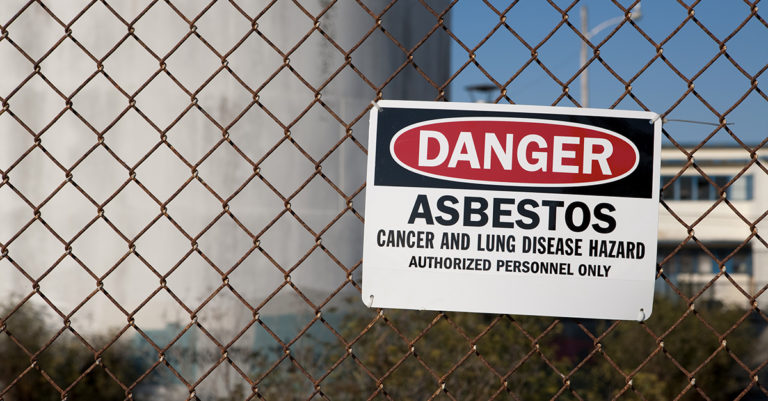Henry County, IL – Simmons Hanly Conroy, one of the nation’s largest law firms focused on consumer protection and mass tort actions, and Meyers & Flowers, a premier Chicago-area law firm, joined forces to file lawsuits for four Illinois counties against pharmaceutical companies and drug distributors over the aggressive and fraudulent marketing of prescription opioid painkillers that has led to a drug epidemic in the state and throughout the nation.
Counties filing suit in Illinois are: DeKalb, Henry, Kendall, and Macoupin.
The defendants in the lawsuits include drug makers Purdue Pharma, L.P.; Purdue Pharma, Inc.; The Purdue Frederick Company, Inc.; Abbott Laboratories; Abbott Laboratories, Inc.; Teva Pharmaceuticals USA, Inc.; Cephalon Inc., Johnson & Johnson; Janssen Pharmaceuticals, Inc.; Ortho-McNeil-Janssen Pharmaceuticals, Inc.; Janssen Pharmaceutica, Inc.; Endo Health Solutions Inc.; and Endo Pharmaceuticals, Inc. The drug distributors named in the lawsuits are McKesson Corporation, Cardinal Health, Inc., and AmerisourceBergen Drug Corporation. The American Academy of Pain Medicine, American Geriatrics Society, and
American Pain Society are also named in the lawsuits for working with the manufacturing defendants in promoting opioids to doctors and patients.
“These four counties have made the decision to hold accountable the drug companies and drug distributors who are responsible for destroying their communities,” said Simmons Hanly Conroy Shareholder Paul J. Hanly, Jr., lead co-counsel for the counties in this case. “These counties, like many other counties across the nation, are suffering. Together, with local leaders, we will work to get justice for the many residents who have been impacted by this epidemic.”
The opioid epidemic is the number one public health crisis facing our nation. It has ravaged every corner of the counties filing and every part of this state,” said Peter J. Flowers, Founding Shareholder at Meyers & Flowers, lead co-counsel for the counties. “Together, we will hold these defendants accountable for their devious and systematic schemes to increase profits as they erode the lives of Illinois residents every day. The cost of the pharmaceutical industry’s greed is being paid by children, sisters, brothers, husbands, wives, grandparents and our entire community here in Illinois.”
In the complaints, the counties seek relief for the cost to combat the public nuisance created by the drug companies’ deceptive marketing campaign that misrepresents the safety and efficacy of long-term opioid use. Additionally, the complaints allege that the crisis was fueled and sustained by those involved in the supply chain of opioids, including manufacturers and distributors, who failed to maintain effective controls over the distribution of prescription opioids and who instead have actively sought to evade such controls. According to the Illinois Department of Public Health, opioids contributed to nearly 1,200 overdose deaths in Illinois in 2016.
Apart from the toll on human life, the crisis has financially strained the services the counties provide their residents and employees. Human services, social services, court services, law enforcement services, the office of the coroner/medical examiner and health services, including hospital, emergency and ambulatory services have all been severely impacted by the crisis. The defendants’ conduct caused the counties to incur substantial economic, administrative and social costs relating to opioid addiction and abuse, including criminal justice costs, victimization costs, child protective services costs, lost productivity costs, and education and prevention program costs, among others.
The lawsuits allege the defendants sought to create a false perception in the minds of physicians, patients, health care providers and health care payors that using opioids to treat chronic pain was safe for most patients and that the drugs’ benefits outweighed the risks. This was allegedly perpetrated through a coordinated, sophisticated and highly-deceptive promotion and marketing campaign – including unbranded messaging to evade extensive regulatory framework governing branded communications. These communications, which began in the late 1990s, became more aggressive around 2006 and continue today.
Further, the lawsuits allege that drug distributors have both the obligation and the tools to track suspiciously large surges in prescription opioid demand, including at the level of individual pharmacies or clinics. The lawsuits allege, however, that the defendants have failed to use these tools to warn public officials about suspicious orders, which they are legally required to do, or to reasonably exercise controls over the obvious oversupply of opioid pills.
The Illinois lawsuits follow similar, ongoing actions filed by Simmons Hanly Conroy and Meyers & Flowers on behalf of counties across the country. In addition to Illinois, Simmons Hanly and Meyers & Flowers represent or have filed similar litigation on behalf of more than 200 other municipalities in Arkansas, California, Connecticut, Georgia, Iowa, Indiana, Idaho, Louisiana, Minnesota, Missouri, Nebraska, New Jersey, North Carolina, Ohio, Pennsylvania and Wisconsin. Through its opioid-related litigation, Simmons Hanly Conroy and Meyers & Flowers represent communities populated by nearly 50 million Americans.




